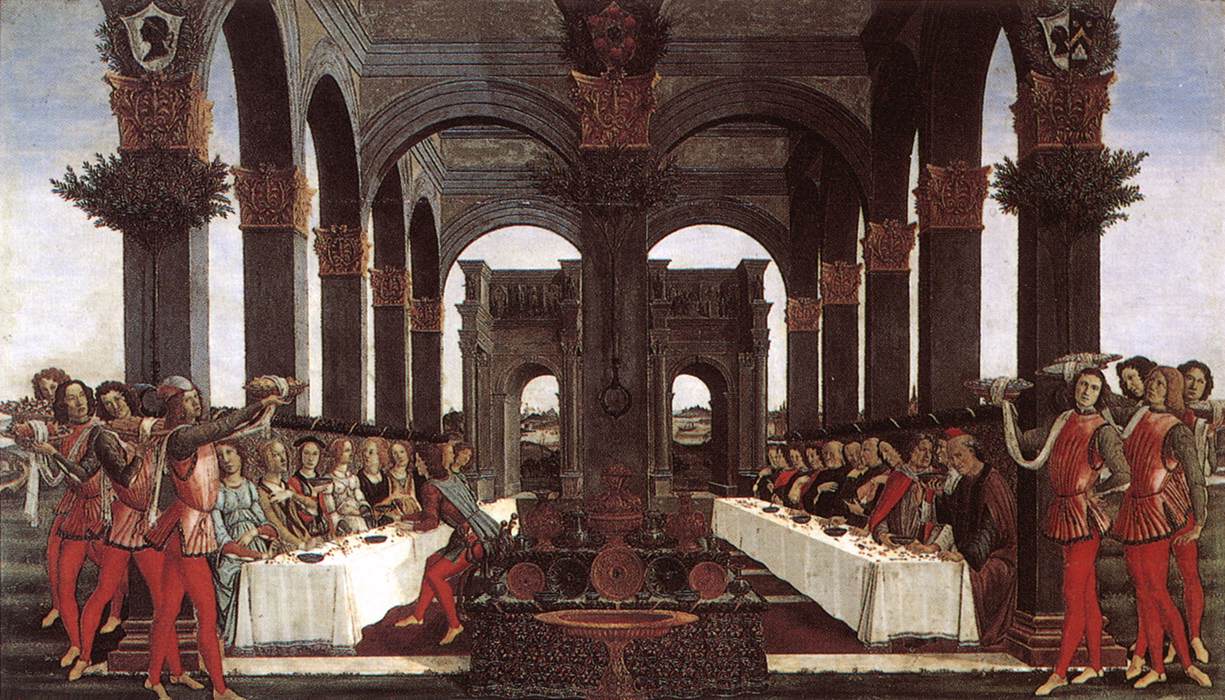"MY DICTIONARY," MAY, 1821 — DETACHED THOUGHTS,
1 OCTOBER 15, 1821 — MAY 18, 1822.Ravenna, May 1st 1821.
AMONGST various journals, memoranda, diaries, etc., which I have kept in the course of my living, I began one about three months ago, and carried it on till I had filled one paper-book (thinnish), and two sheets or so of another. I then left off, partly because I thought we should have some business here, and I had furbished up my arms, and got my apparatus ready for taking a turn with the Patriots, having my drawers full of their proclamations, oaths, and resolutions, and my lower rooms of their hidden weapons of most calibres; and partly because I had filled my paper book. But the Neapolitans have betrayed themselves and all the World, and those who would have given their blood for Italy can now only give her their tears.
Some day or other, if dust holds together, I have been enough in the Secret (at least in this part of the country) to cast perhaps some little light upon the atrocious treachery which has replunged Italy into Barbarism. At present I have neither the time nor the temper. However, the real Italians are not to blame merely the scoundrels at the Heel of the Boot, which the Hun now wears, and will trample them to ashes with for their Servility.
I have risked myself with the others here, and how far I may or may not be compromised is a problem at this moment: some of them like "Craigengelt" would "tell all and more than all to save themselves;" but, come what may, the cause was a glorious one, though it reads at present as if the Greeks had run away from Xerxes.
Happy the few who have only to reproach themselves with believing that these rascals were less rascaille than they proved. Here in Romagna the efforts were necessarily limited to preparations and good intentions, until the Germans were fairly engaged in equal warfare, as we are upon their very frontiers without a single fort, or hill, nearer than San Marino. Whether "Hell will be paved" with those "good intentions," I know not; but there will probably be good store of Neapolitans to walk upon the pavement, whatever may be its composition. Slabs of lava from their mountain, with the bodies of their own damned Souls for cement, would be the fittest causeway for Satan's Corso.
But what shall I write? another Journal? I think not. Anything that comes uppermost and call it "my Dictionary."
Notes on the text:
MY DICTIONARY - DETACHED THOUGHTS - In this and previous editions copious extracts have been made from Byron's Detached Thoughts. But the original manuscript is here, for the first time, given in its entirety. The volume bears the inscription "Paper Book of G.G.B, L.d B — . Ravenna, 1821." (Prothero's note)
the Neapolitans have betrayed themselves and all the World - Pietro Orsi tells the story succinctly:
Napoleon had predicted:the atrocious treachery - Byron probably means that the Neapolitan Carbonari first encouraged the northern Carbonari cells to resist the Austrians, but then gave them no support and made their (futile) stand much farther south.Italy, shut up within her own natural boundaries and separated from the rest of Europe by the sea and by lofty mountains, seems destined to form a great and important nation. . . . Unity of language, customs and literature will lead, in the more or less distant future, to a union of the inhabitants under one single government. . . . Although Rome lacks many qualities that are desirable in the capital of a great country, it is yet beyond doubt that the Italians will some day make Rome the seat of their government and the metropolis of their State.But in the attainment of that ideal, which appeared as a dream to the minds of the elect, what alternations of hope, and grief, and happiness!
The mass of the nation, especially the peasants, were still too ignorant to feel any enthusiasm about the glorious records of the past, or to understand the great ideas of liberty and independence. They took no interest in politics, and remained in great part unaffected by the national movement. Most of the aristocracy also were either indifferent or hostile, for they saw in the new revolution the certain loss of those few privileges which they had regained at the Restoration, and which they were disinclined to sacrifice to sentimental aspirations. Only the more intelligent and more cultured among them, understanding that a political transformation was by this time a necessity, decided to give it their support. But the preponderant part in the Italian Revival was taken by the bourgeoisie—this new social class which was just developing while fresh aspirations diffused themselves through Italy, and which ended by becoming completely imbued with them.
The first open signs of hostility to the restored regime came from the ranks of the army. During. the Napoleonic period—that continuous whirlwind of war—many young men who felt the exuberance of life had ardently adopted the career of arms as one that offered means of rising in the world and of satisfying every ambition. These young officers felt themselves stifled by the general torpor that characterized the life of Europe during the Restoration —Questo secol morte, al quale incombeas Leopardi described it in his poem To Angelo Mai, written in the early days of 1820.
Tanta nebbia di tedio,
[This dead era, over which broods
an immense fog of ennui]
Though many people were discontented with the administration, they had no legal means of opposing it or of trying to make the governments change their methods. They could not even express their opinions openly, for that would certainly have led to their arrest. The one course that offered any hope of change was the forming of secret societies which might become strong enough to impose their wishes on the governments.
Of these secret societies the most powerful was that of the Carbonari. To this day its origins are involved in obscurity. Perhaps it was an offshoot of the Freemasons. Under the rule of Joachim Murat, it was firmly rooted in the Kingdom of Naples; after the return of the Bourbons it spread still more widely, especially among the ranks of the army.
The early triumph of the Spanish revolution of 1820 made a deep impression in Naples, a region linked to Spain by so many memories and affinities. The leaders of the Carbonari now decided to act. On July 2, 1820, in the little town of Nola at the foot of Vesuvius, two sub-lieutenants (Morelli and Silvati) set on foot the insurrection. Their demand was that the King should grant a constitution. Followed by little more than a hundred soldiers, they went out from Nola and advanced on Avellino. The governor, Colonel de Conciliis, was himself a Carbonaro. After some hesitation he joined them, with the little garrison that he commanded, and moved towards the capital. Meanwhile in several provinces the Liberals were raising their heads and showing themselves favourable to the insurrection. On the night of July 5th, General Guglielmo Pepe, fearing arrest because he was widely known as a Liberal, left Naples and put himself at the head of the insurgents. At once the insurrection assumed such proportions in the capital itself that King Ferdinand, fearing the loss of his throne, granted the constitution (July 6th). Never was victory more easily and swiftly gained.
But the erection of a constitutional government in the Kingdom of the Two Sicilies alarmed the Powers of the Holy Alliance, and especially Austria, who saw the tranquillity of her Italian dominions threatened. In order to get authority for armed intervention, Austria called together a Congress at Laybach, the capital of Carniola, and invited to it also King Ferdinand I., whom she knew to be desirous of restoring absolutism. At Laybach, in January, 1821, the fate of Naples was decided. The Holy Alliance, declaring that it had the right and the duty of preserving peace in Europe, and that the condition of the Kingdom of the Two Sicilies threatened the security of all governments, directed an Austrian army to enter Neapolitan territory and restore order. On his part, Ferdinand I. wrote to Naples inviting his subjects to welcome amicably the troops of his faithful ally, the Emperor Francis I. of Austria.
The Neapolitan Parliament, which no longer trusted the King, thought fit to declare that no credence should be attached to his words, since he was not free amongst the sovereigns of the North; and it resolved to defend the Kingdom against the Austrian invasion. But nothing was ready. The ministry was largely made up of weak and unreliable men. The delusive views of men who were unconscious of the gravity of the situation prevailed in Parliament and in the newspaper press. The army was disorganized; its leaders were out of harmony, its soldiers lacked discipline. General Guglielmo Pepe, at the head of ten thousand men, faced the Austrians at Rieti on March 7, 1821. He was defeated, and the greater part of his troops dispersed, carrying discouragement into all the provinces. Many Liberals fled or hid themselves. The Austrian troops advanced on Naples without meeting further opposition; on March 23, 1821, they entered the capital and restored the absolute monarchy. In Sicily, too, all opposition was stifled.
some of them like "Craigengelt" would "tell all and more than all to save themselves" - Neither Byron nor his editors reveals the meaning of this. Craigengelt is a place in Austria.
as if the Greeks had run away from Xerxes - The small band of Greek defenders famously did not run from a vast Persian army under Xerxes. As wikipedia reports:
At the Battle of Thermopylae, a small force of warriors, 300 Spartans, and 1000 other Greeks, led by King Leonidas of Sparta, resisted the much larger Persian forces, but were ultimately defeated. ... After Thermopylae, Athens was captured and the Athenians and Spartans were driven back to their last line of defense at the Isthmus of Corinth and in the Saronic Gulf. The delay caused by the Spartans allowed Athens to be vacated.rascaille - The term is French for a low-life, a member of the the despicable scum of society.
Corso - Italian for course, way, race; in this case probably something like a boulevard.
View Larger Map
Some sources:
The Works of Lord Byron
Cavour and the Making of Modern Italy, 1810-1861 By Pietro Orsi (1914)





















